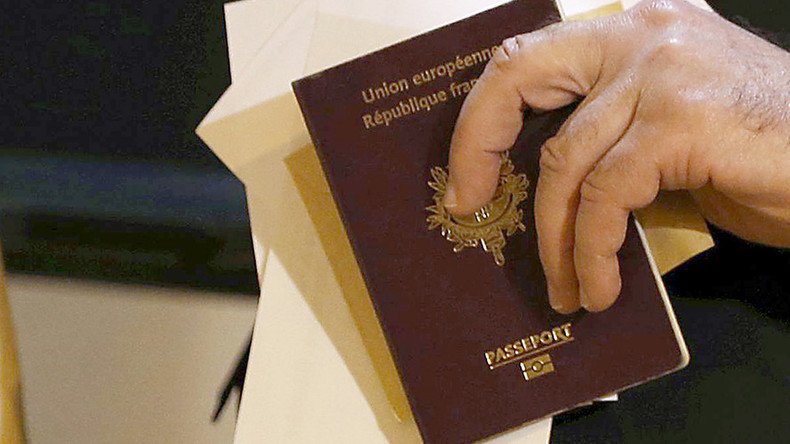French watchdog slams planned mega-database of citizens’ biometric data

A French watchdog, entrusted with assessing the impact of digital technologies on society, has called for the suspension of and a public debate over a new stealthily-issued government decree that allows massive biometric data collection on almost every Frenchmen.
In an effort to crack down on identity theft, on October 30, the French government issued a decree to establish Titres Electroniques Securises (TES), a massive new database that is set to store personal information on anyone who holds a French identity card or passport.
OP-EDGE: ‘France’s spy bill worse than US Patriot Act’
The centralized system will basically incorporate information provided by nationals or legal residents to the authorities when they applied for their French passport or national ID cards.
The biometric data in the new database will include the name of the individual, in addition to their address, eye color, weight, and a marital status. Furthermore, the system will store a photograph of the person as well as their fingerprints.
Those over 12 years old are expected to be entered into the new centralized system. The information retrieved from identity cards will be stored for the duration of 20 years while data garnished from passports will be stored for 15 years.
The creation of TES, which will affect some 60 million people, is France’s first effort to collect and store such a vast amount of population data since Vichy France, essentially the Nazi occupation, 1940-1944.
Following an initial wave of strong criticism, on Monday, the National Digital Council (CNNum), a watchdog that examines the impact of technology on society and the economy, called for the suspension of the decree No. 2016-1460 as it had been issued “without prior consultation” with appropriate experts.
A centralized system is “the door open to misuse that is as likely as it is unacceptable,” CNNum said. “Presented as a way to fight against document fraud, this system may nevertheless be subject to legal requisitions or used by the specialized intelligence services.”
The watchdog also warned that TES could “eventually” allow the authorities to use facial or image recognition for the “systematic identification” of individuals.
After the introduction of the decree, the National Commission on Informatics and Liberties (CNIL) called for a parliamentary debate on TES.
“This is a serious, important matter that affects all French. I think necessary that there be a collective decision on such a sensitive subject, not only by its content but by its very existence,” President of CNIL, Isabelle Falque-Pierrotin, told AFP, last week.
The creation of TES, without prior public debate on the matter, led MP Lionel Tardy to accuse the government last week of “treating the French people like pumpkins.”
French Interior Minister Bernard Cazeneuve was forced to defend the TES on Monday, especially after Digital Affairs Minister Axelle Lemaire distanced her ministry from the government decree.
“This decree was made fresh by the Interior Ministry....thinking that it would pass without being known or seen,” Lemaire said, calling the move a “major dysfunction.”
In a letter to the National Digital Council, Cazeneuve said that on the contrary to all the criticism, the project was made in a “transparent” way and approved by all the “concerned ministers and the Prime Minister, after the usual inter-ministerial consultations.”












